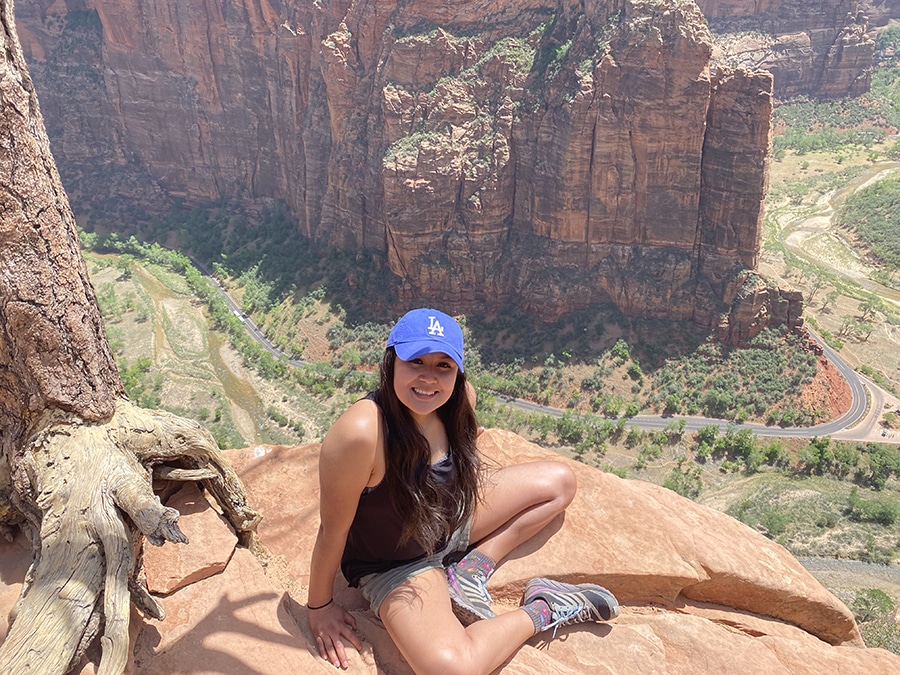In 2015, Jennifer Hudson enrolled in NAU’s biomedical science program with plans to become a doctor.
“I knew I wanted to use my degree to help my community, the Navajo people, live longer, healthier, happier lives,” said Hudson, who grew up on her grandfather’s ranch on the outskirts of Gallup, New Mexico.
For a year, this was the right path for her. In her second year, she took a class in public health, and an entirely new field of health services opened up to her. The 19-year-old reconsidered the best way to help her community. Then she changed her major.
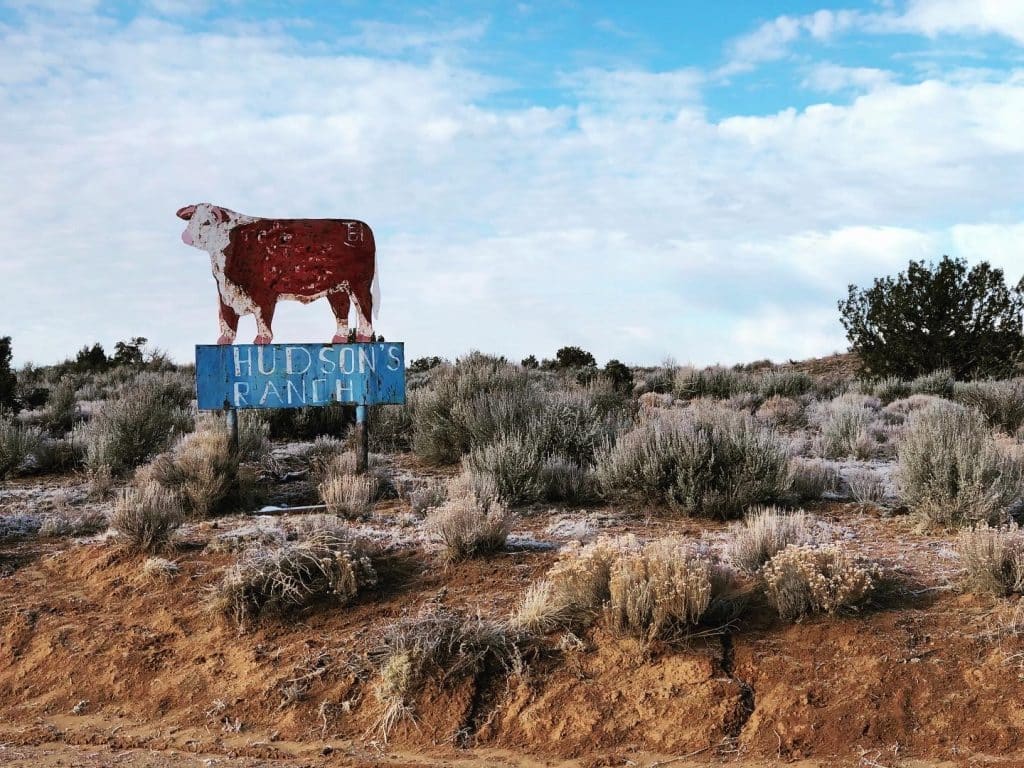
Now Hudson has completed a master’s degree in public health with a focus on Indigenous studies; she’s participated in multiple research projects related to public health for Native American and Indigenous communities, she served as a fellow in the Tribal Researchers Cancer Control Fellowship Program and did a research internship at the National Institute of Diabetes, Digestive and Kidney Diseases (NIDDK). It all has prepared her for the next phase of her career—continued public health research with tribal communities and earning a Ph.D.
‘I feel like I have so much more to learn, and I have finally found a path that works for me,” she said. “After earning a Ph.D., I plan to return to my community and bring back all the tools and skills I’ve gathered to help them in their pursuit of long and healthy lives, free of disparities and inequities.”
Hudson’s research
Her first foray into research was on Restoring Balance, a National Cancer Institute-funded project led by Dirk de Heer, a professor in the Department of Health Sciences and research education core lead of the Partnership for Native American Cancer Prevention, that looked at physical activity and its effect on the quality of life among Navajo cancer survivors. She was learning how to do research, which made the whole experience even more challenging, but she also found it interesting and fulfilling to work with members of the Navajo community.
It wasn’t just the importance of the subject that made the difference either. Halfway through her bachelor’s program, her grandmother was diagnosed with lung cancer. That news crushed Hudson.
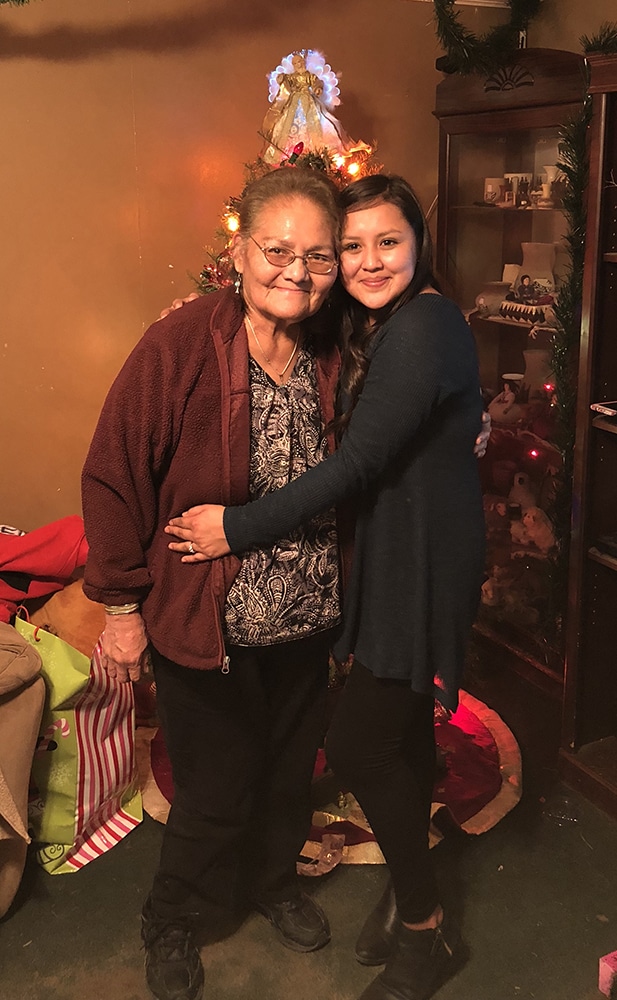
“My grandmother had such a strong and positive influence in my life and my upbringing; we were basically inseparable,” Hudson said. “She truly was my best friend.”
That made the research personal for her—every participant in the research project reminded Hudson of her grandmother. The personal and professional experiences helped shape her passion for cancer health equity research and the pursuit of alleviating the health disparities, specifically related to cancer, that tribal communities face. She also co-authored three peer-reviewed publications as part of this work.
As a grad student, she participated in research funded by an NIH R01 grant that evaluated the impact of the Navajo Nation’s junk food tax, known as the Healthy Diné Nation Act. She took on several roles, including surveyor, data coder, writer and presentation disseminator, contributing to her growth as a researcher.
“It’s been amazing to see Jennifer grow over the years,” said de Heer; he was immediately impressed with Hudson when they met and invited her to work on the Restoring Balance project. “Jennifer was simply fantastic throughout the program, taking on more responsibility than typical for a research assistant and leading meetings, collecting data, interacting directly with participants and even presenting findings to funders.”
Interning with the National Institutes of Health
When Hudson was still working on her undergraduate degree, her mentor recommended she apply for an internship at the NIDDK. She remembers two successive thoughts: “That’s crazy, I won’t get in,” and “well, there’s no harm in applying.” She got the internship and spent summer 2019 in Bethesda, Maryland, at the NIH headquarters, doing research with Dr. Stephanie Chung, a pediatric endocrinologist and researcher.
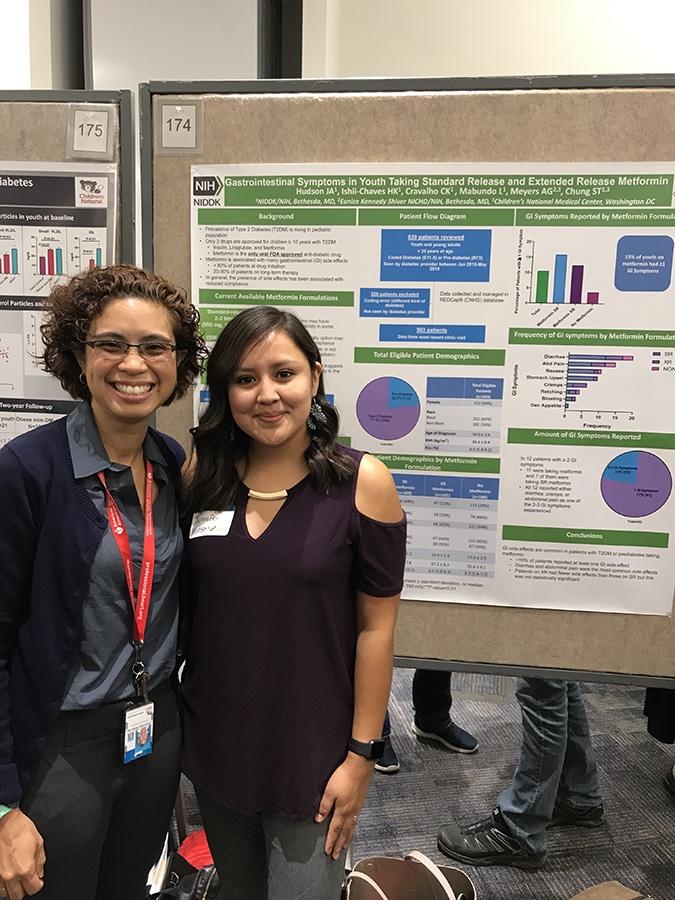
In addition to shadowing Chung and seeing her work, Hudson did her own research, using secondary data from diabetes research participants to track gastrointestinal symptoms among youth taking metformin, a medication to treat Type 2 diabetes.
“Although there were times I felt out of place, given my background in public health and the NIH being heavily focused on biomedical health, Dr. Chung and her team created a welcoming environment that not only fostered my public health knowledge but appreciated it,” she said. “This was such an eye-opening and uplifting experience and truly sparked my passion for research.”
De Heer was less surprised when she was among 10 students selected for the internship; Hudson’s academic ability, extracurricular engagement, cultural identity and motivation made her a competitive applicant. Such internships are an incredible career accelerant that give students experience in a nationally recognized research center while they’re still figuring out their career, he said.
Hudson’s time at NAU
After eight years, it’s no surprise that one of the tools Hudson has acquired is a large and diverse network of employers, colleagues and peers. Those connections, and the doors that have opened for her because of them, have made a considerable difference in the experience Hudson has had at NAU and as she prepares for her career. It’s evidence of the power of collaboration and community, especially within the field of public health, she said.
Samantha Sabo, an associate professor in the Department of Health Sciences and affiliated researcher with the Center for Health Equity Research, worked
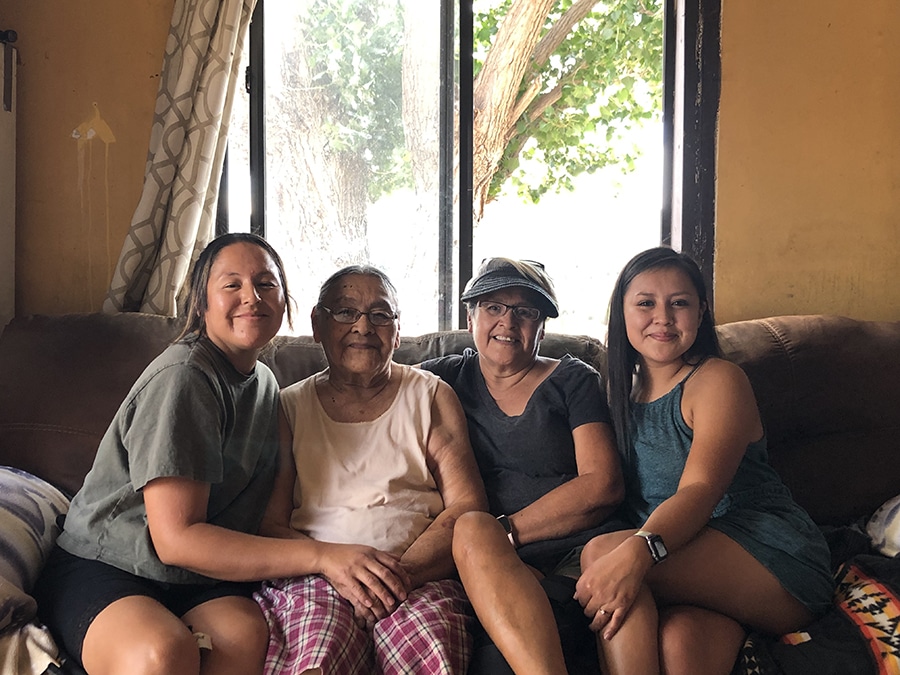
with Hudson on a CDC project to advance integration of community health representatives into seven partner tribal health systems. That has given her opportunities to be a leader both in public health and in Indigenous communities, bringing her own experiences to be as she works with the tribes.
“Jennifer is an emerging Indigenous public health leader who places priority on her relatives and ancestors and supports all in her obit to conduct themselves with respect and honesty and reciprocity when working cross-culturally,” Sabo said. “To be yourself, you need to see yourself, and Jennifer makes others feel seen and be seen—she ignites the spark in others all around her to be better and do more.”
Of course, it wasn’t easy. Gallup is a three-hour drive from Flagstaff. For a student busy with more than one research project plus classes, going home frequently was hard. That distance was the biggest challenge Hudson faced, especially considering that the health disparities she was researching were affecting her family and other loved ones firsthand.
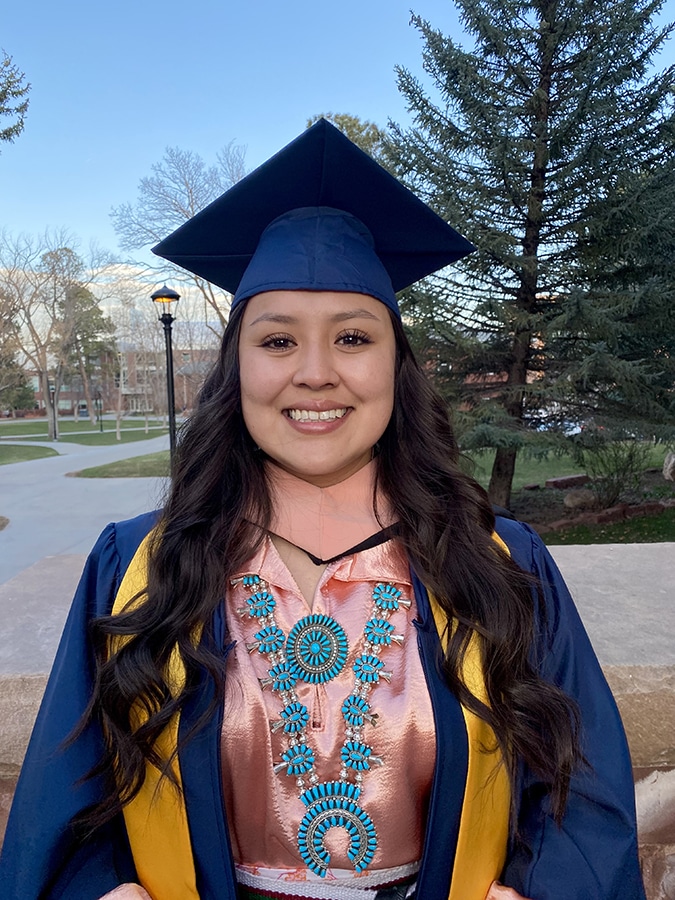
That distance was hardest when her beloved grandmother died just before Hudson started her MPH program. Then her other grandmother died of another disease that could have been prevented. It was almost too hard for Hudson to keep going—almost. Remembering the women who were so supportive of her education motivated Hudson to keep going even when she felt she couldn’t.
“They were both such important matriarchs in our family, and they deserved to live longer lives, and that’s how I feel about all our people, especially our elders,” she said. “We as Indigenous people have so much to give to this world, and I want to be a part of the work that helps them achieve that.”
Heidi Toth | NAU Communications
(928) 523-8737 | heidi.toth@nau.edu
